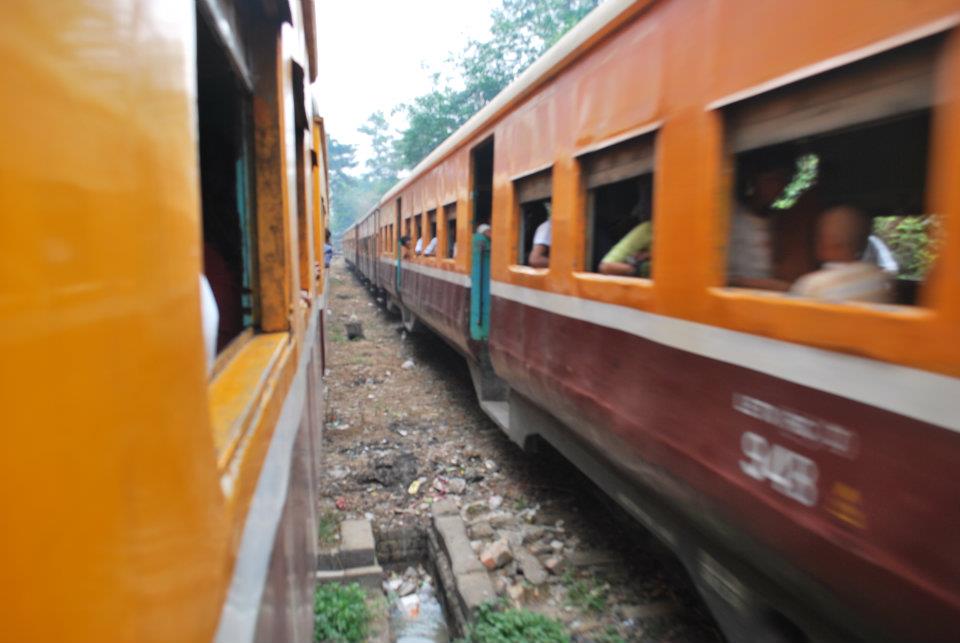Japan and Burma are looking to build upon their historical relationship on railways cooperation with both premiers scheduled to discuss the topic at an upcoming Japan-ASEAN summit in December.
Speaking at a ceremony to mark a donation of railroad equipment to Burma, Ichiro Maruyama, the deputy chief of mission at the Japanese embassy in Rangoon, said cooperation on Burma’s railway sector will be one of the main points on the agenda when the two leaders meet in Japan next month.
“President Thein Sein is travelling to Japan in December to attend the Japan-ASEAN summit,” he said. “Discussions over cooperation in Burma’s railways system will be a focal point of any bilateral meeting.”
Maruyama said that Japan’s prime minister and transport minister also broached the subject during their visit to Burma earlier this year.
[related]
Burma’s Transportation Minister Than Htay confirmed that Japan had signaled its intention to help on railways during their meeting in April.
“Ever since then, the Japanese government, including the land, construction, transportation and travel ministers, plus the Japan International Cooperation Agency and Japanese businesspeople, have held regular meetings with the [Burmese] Ministry of Railway Transportation and the Myanmar Railway Enterprise,” said Than Htay.
Burma has been receiving loans and assistance from Japan to maintain its railway system since 1962. During that time, train engines, carriages, railway tracks and other machinery have been replaced. In 1982 and 1984, the Ministry of Railway Transportation received a loan of over ¥123 billion (US$1.2 billion) from the Overseas Economic Cooperation Fund.
The Japanese government has recently provided technology to repair the railroad between Rangoon and Pegu as a precursor to a project to improve safety on the railroad between Rangoon and Mandalay and other related services. Japan has also exported dozens of railway renovation materials to Burma, and has provided training to Burmese railways staff.
The news about the moves to enhance cooperation on the railways sector comes at a time of renewed Japanese interest in the Dawei Special Economic Zone (SEZ) in southern Burma. Several Japanese companies have already committed to investments and factories at the Thilawa SEZ close to Rangoon, and speculation is high that Japan may take over as majority shareholder on the Dawei project in the wake of a joint-governmental decision by Bangkok and Naypyidaw to release Italian-Thai pcl from its contract as the main contractor at the SEZ.



